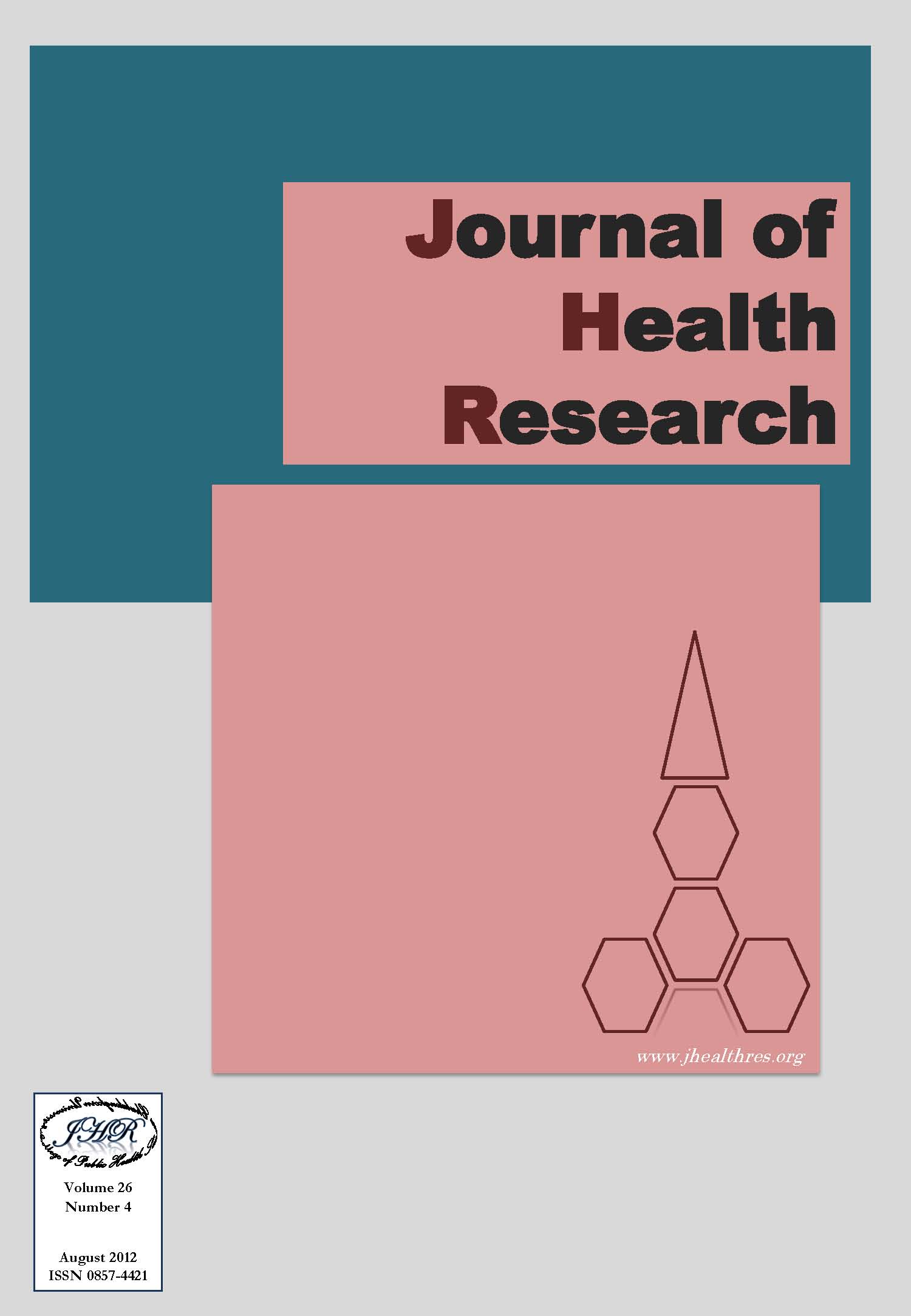Pesticide Application and Safety Behaviour among Male and Female Chilli-Growing Farmers in Hua Rua Sub-District, Ubon Ratchathani Province, Thailand
Keywords:
Pesticide use, Exposure, Safety behavior, chilli-growing farmersAbstract
Pesticides are widely used in Thailand, and can lead to serious acute and chronic health effects. To understand the determinants of pesticide exposure, such as farmers’ behaviors, is important in the effort to reduce exposure effectively. In this study, a standardized questionnaire was designed and used in order to collect information on use and safety behavior related to pesticide in chilli-growing farmers in the northeastern agricultural area of Thailand. The study assessed safety behaviour among the farmers, by gender, in Hua Rua sub-district Ubon Ratchathani Province. 35 randomly selected chilli-growing farmers had face-to-face interviews to investigate, general characteristics, frequency of spraying pesticide and pesticide safety behavior such as the pesticides used on their crops, use of personal protective equipment (PPE), cleaning gloves, pesticide container condition, and the place of changing and laundering work clothes and shoes. 74.3% and 25.7% of study participants were males and females, respectively. The average age (±SD) was 56.3 (±11.1) years. Most participants only rarely used protective equipment. 85.7% of them sprayed pesticide once per week. Nearly 80% did not wash or clean their gloves after application. In conclusion, this study observed that the chilli-growing farmers in this area might be exposed to pesticides due to their pesticide using behavior which could contribute to increased health risk. For further study, the pesticide residues and biomarkers of pesticide exposure might be included to better understand risk factors for pesticide exposure. Moreover, risk communication should be applied to increase pesticide exposure awareness, in order to protect themselves from exposure and increase quality of life.







